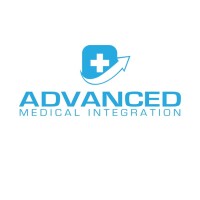
Advanced medical integration
🚨 Injection Providers Beware: Know the Legal Risk...
🚨 Injection Providers Beware: Know the Legal Risks Before Working with AMI
If you are a nurse practitioner, chiropractor, or physician considering AMI’s regenerative medicine trainings or business model, please read this first. I am a licensed regenerative injection provider with advanced training, and I attended multiple AMI’s trainings through different employers. I was hoping for compliance-based education. What I found instead was a dangerous lack of transparency and serious ethical concerns.
⚠️ AMI promotes the use of Wharton’s Jelly and exosomes for intra-articular injection and IV use—yet fails to disclose that these uses are not FDA-approved and may violate federal law and put your license at risk.
🧬 Here’s what you need to know:
Wharton’s Jelly and Exosomes are considered human cellular and tissue-based products (HCT/Ps). Their use is governed by the Public Health Service (PHS) Act, specifically:
Section 351 (42 U.S.C. §262) — Strict Biologic Drug Regulation
• Applies to any product used to treat, cure, or prevent disease
• Requires:
• FDA premarket approval (Biologics License Application, or BLA)
• Clinical trials demonstrating safety, purity, and potency
• Manufacturing in a licensed facility
• Wharton’s Jelly and exosomes used for injection fall under this category. They are not exempt simply because a vendor claims they are “minimally manipulated” or “off-label.”
✅ Bottom line: Unless you are conducting an FDA-approved clinical trial with an IND (Investigational New Drug) license, you cannot legally inject these products. AMI does not make this clear. Infact they claim “off label” use is appropriate and tell you because the umbilical cord tissue is used to cushion arteries and veins then homologous use applies to providing cushioning in the joint. This is false.
Section 361 (42 U.S.C. §264) — Less-Regulated Pathway
• Applies only to minimally manipulated products used for homologous purposes
• Think: skin grafts, amniotic membranes as physical barriers—not joint injections or IV use, PRP, BMAC or A2M.
AMI falsely implies that Wharton’s Jelly qualifies under 361. It does not—because injecting it into joints is non-homologous use and any processing to achieve a sterile exosome or Wharton’s jelly product involves more-than-minimal manipulation.
When I expressed my concerns over using these products, one of the AMI coaches had a conversation with me and all he could do was repeat the same tired excuses I’ve already heard to justify the use of these products. He then encouraged me to speak with the exosome company they are all so excited about now. He claimed this company has an FDA approved product which would then mean off label use is acceptable! Which confirms the initial points I was making. I looked at that companies website and it states clearly in the disclaimer, “not FDA approved.”
🚫 AMI’s Red Flags:
❌ They denied promoting Wharton’s Jelly and exosomes, yet they showcase Juvxo on their website.
❌ At a recent event, an injection training program had a large, featured booth—despite AMI denying any association. This provider has a laundry list of experience but injection techniques taught are elementary at best, malpractice at worst.
❌ They pushed RegenLab “PRP” kits, which in truth produce platelet-poor plasma (PPP), not PRP—and then recommended you sell 3 PPP injections instead of one potent PRP treatment that could actually help the patient.
❌ They claim Wharton’s Jelly is used “off-label.” But “off-label” only applies to FDA-approved drugs. Wharton’s Jelly is not FDA-approved for anything, so it cannot legally be used “off-label.” This is regulatory smoke and mirrors.
🛑 The Risk Is Yours, Not Theirs
AMI’s misleading practices don’t just jeopardize your reputation—they can jeopardize your license. While the FDA may not knock on your door, a state medical board absolutely could if a patient files a complaint. Ask AMI, if Wharton’s jelly and exosomes are safe, legal and effective, why are clinics not allowed to market these products directly?
Final Thoughts
If you’re passionate about regenerative medicine, as I am, find a training program rooted in evidence, integrity, and legal compliance. AMI talks a big game about helping providers build cash practices, selling expensive “stem cell” injections but at what cost? Misleading you about the legality of HCT/Ps is not ethical business—it’s exploitation.
